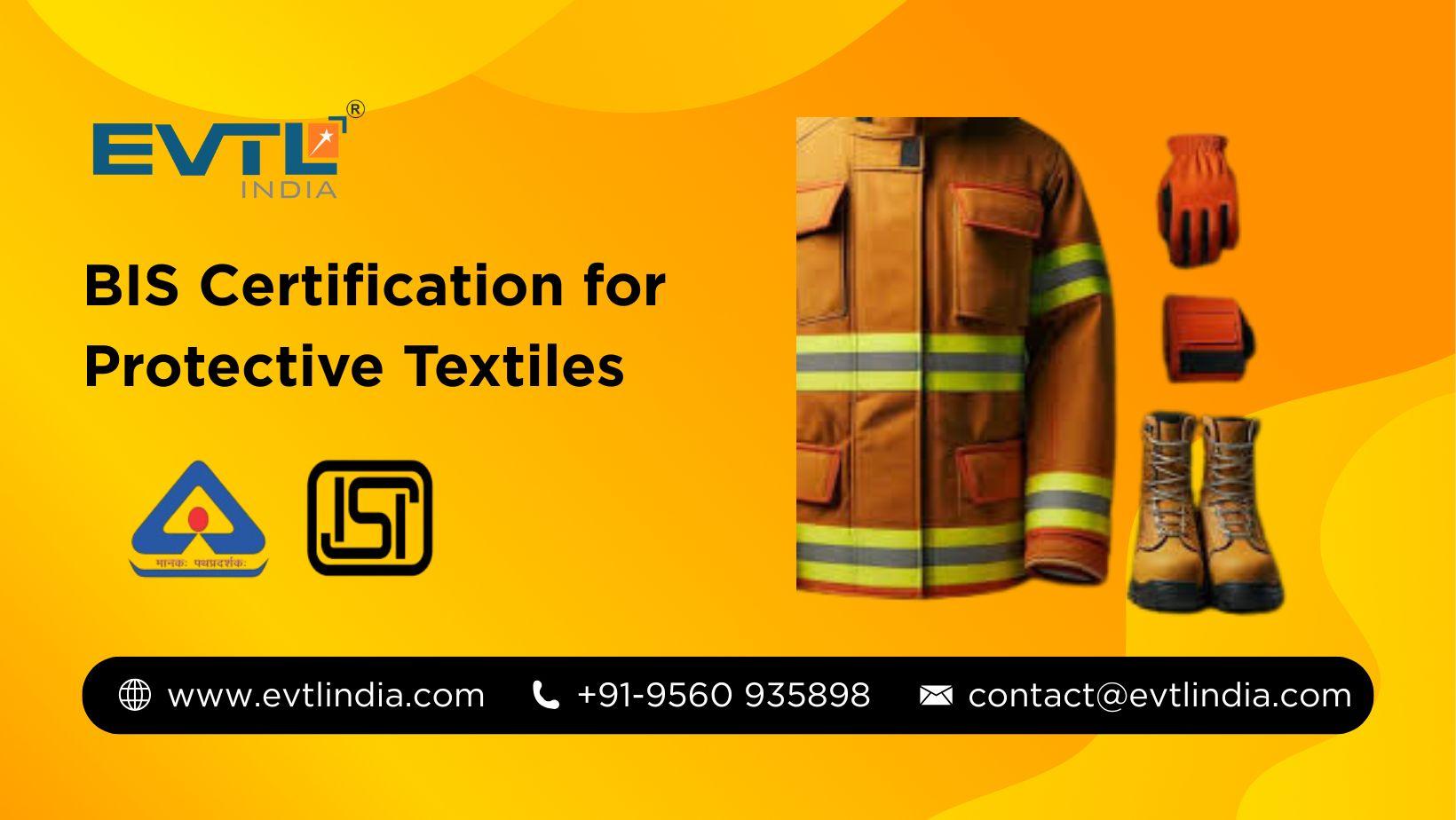BIS Certification for Protective Textiles: Ensuring Safety, Quality, and Compliance in India

Protective textiles are specialized fabrics designed to provide safety, comfort, and resistance against hazards such as fire, chemicals, extreme weather, and mechanical risks. From industrial uniforms to defense gear, protective textiles play a critical role in safeguarding workers, soldiers, and civilians. Given their importance, maintaining strict quality and performance standards is vital.
In India, the Bureau of Indian Standards (BIS) governs the certification of protective textiles under its ISI mark scheme. Obtaining BIS certification for protective textiles ensures that products meet the required safety, durability, and performance parameters before being sold in the Indian market.
Why BIS Certification for Protective Textiles is Essential
BIS certification is not just a compliance requirement—it is a quality assurance mark that enhances trust and credibility. Below are the key reasons why it is essential:
-
Safety Assurance – Protective textiles must withstand critical conditions. BIS testing ensures they meet safety benchmarks such as flame resistance, tensile strength, chemical resistance, and durability.
-
Legal Compliance – Certain protective textiles fall under mandatory certification as per BIS Quality Control Orders (QCOs). Selling uncertified products can lead to penalties, seizure, or market bans.
-
Consumer Trust – The ISI Certification for Protective Textiles assures end-users, industries, and institutions that the product has been tested and approved by India’s national standards body.
-
Market Competitiveness – Certified products gain an edge in both government procurement and private sector contracts, as many buyers prefer BIS-certified goods for reliability.
Protective Textiles Covered under BIS Certification
The scope of BIS for protective textiles is expanding as safety requirements increase across industries. Some categories include:
-
Flame-Retardant Fabrics – Used in firefighting gear, uniforms, and industrial clothing.
-
High-Visibility Clothing – Essential for construction workers, traffic controllers, and road safety personnel.
-
Chemical Protective Clothing – Shields workers from hazardous liquids, gases, and chemicals.
-
Bulletproof and Ballistic Textiles – Used in defense and law enforcement applications.
-
Protective Gloves and Footwear Fabrics – Ensuring safety in industrial, medical, and laboratory environments.
-
Weather-Resistant and Thermal Fabrics – For military, mountaineering, and extreme climate use.
Each product must undergo rigorous testing as per the relevant Indian Standards (IS) before it can receive the ISI mark.
Process of BIS Certification for Protective Textiles
The certification process involves several steps and requires careful documentation and technical readiness. Below is a structured outline:
-
Identify Applicable Standard – Manufacturers must first determine the specific Indian Standard applicable to their protective textile product.
-
Application Submission – Submit an application to BIS along with technical documents, product details, and testing reports (if available).
-
Factory Audit (for ISI Certification) – BIS officials conduct on-site inspections to verify manufacturing infrastructure, quality control measures, and production processes.
-
Product Testing – Samples are tested in BIS-recognized laboratories to ensure compliance with all safety and performance parameters.
-
Grant of License – If the product passes all tests and audits, BIS grants the ISI mark certification. The manufacturer is then authorized to affix the ISI mark on their protective textile products.
-
Post-Certification Surveillance – BIS conducts regular surveillance and sample testing to ensure continued compliance.
Benefits of ISI Certification for Protective Textiles
The ISI mark is more than just a compliance requirement. It provides manufacturers, distributors, and consumers with several advantages:
-
Regulatory Acceptance – Meets government procurement and tender requirements.
-
Enhanced Brand Value – Demonstrates reliability and commitment to safety.
-
Export Opportunities – BIS certification enhances credibility in international markets.
-
Reduced Liability – Ensures products meet safety standards, minimizing risks of accidents and legal disputes.
Role of a BIS Consultant for Protective Textiles
Navigating the BIS certification process can be challenging for manufacturers due to its technical requirements, documentation, and time-bound compliances. This is where a BIS consultant for protective textiles adds significant value.
A professional consultant helps in:
-
Identifying the correct Indian Standards applicable to the product.
-
Preparing technical documents, test reports, and quality manuals.
-
Coordinating with BIS and recognized laboratories for product testing.
-
Assisting during factory inspections and audits.
-
Ensuring timely grant of ISI certification without delays.
-
Providing support for license renewal and post-certification compliance.
With expert guidance, manufacturers can save both time and resources while ensuring hassle-free certification.
Challenges Faced by Manufacturers in BIS Certification
While certification offers immense benefits, manufacturers often face hurdles, such as:
-
Lack of clarity about applicable standards.
-
Delays in product testing due to limited lab facilities.
-
Complex documentation and compliance requirements.
-
Understanding the technical parameters for protective textiles.
Engaging with an experienced BIS consultant for protective textiles helps mitigate these challenges effectively.
Conclusion
EVTL India is one of the leading BIS Consultant in India, helping manufacturers obtain their BIS licences hassle-free. The demand for high-quality protective textiles in India is increasing across industries such as defense, firefighting, healthcare, construction, and manufacturing. To ensure safety and compliance, obtaining BIS certification for protective textiles is a critical requirement. The ISI certification not only guarantees product safety but also enhances credibility and market acceptance.
For manufacturers aiming to expand their reach and maintain long-term trust, working with a reliable BIS consultant for protective textiles ensures smooth certification, compliance with Indian regulations, and a competitive advantage in the marketplace.
- Art
- Causes
- Crafts
- Dance
- Drinks
- Film
- Fitness
- Food
- Giochi
- Gardening
- Health
- Home
- Literature
- Music
- Networking
- Altre informazioni
- Party
- Religion
- Shopping
- Sports
- Theater
- Wellness


